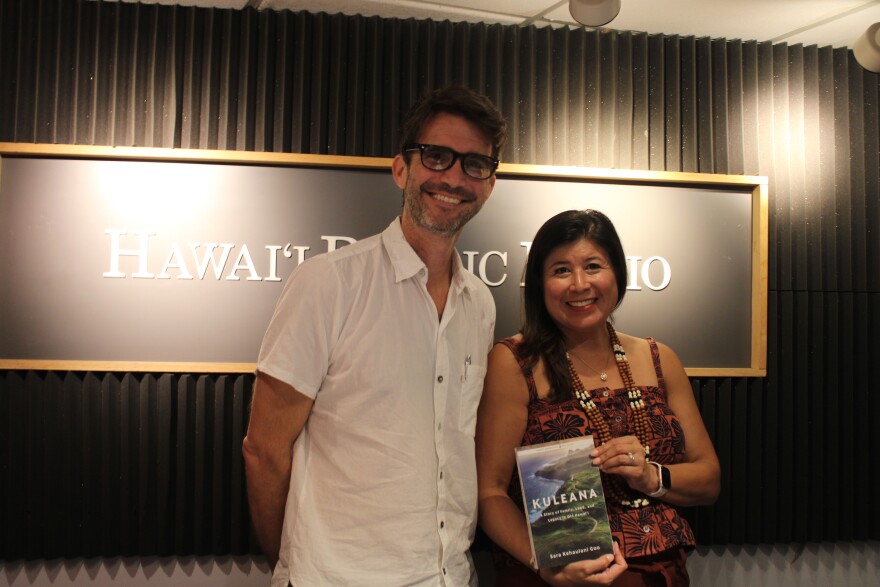For 175 years, Sara Kehaulani Goo’s family cared for 990 acres on Maui. The land was gifted to them by King Kamehameha III as part of the Great Māhele, which recast the idea of land ownership on the islands.
But in 2019, Goo’s family was confronted with a shock: a 500% increase in the property tax for the 90 acres that are still in the family’s possession. That forced the family to confront the question: to sell, or not to sell?
Goo’s new book, “Kuleana: A Story of Family, Land, and Legacy in Old Hawaiʻi," harnesses her family’s story to explore some of the bigger issues facing present-day Hawaiʻi, including access to land and how the experience of being Hawaiian is defined.
The Conversation spoke to Goo about her reporting for the book and revisiting her family’s past. "Kuleana" takes place in Hāna on Maui, where her grandmother was born — and many family members before that.
“A family crisis ensued when we got a property tax bill that had gone up more than 500% without really much of an explanation," she said. “We were left to really decide what to do, to pay or to sell, to fight for our lands or to give them up. And really, it actually was an easy answer. We knew that we might have to face this kind of thing someday, and this was the moment.”
Goo grew up in Southern California, though she first discovered her family’s parcel at the age of 8, remembering it as a wild, jungle-like rainforest.
Nestled within the land was an enormous heiau, which Goo said she later learned to be Piʻilanihale Heiau, the largest heiau in all of Hawaiʻi.
“All I knew and was told at that time was that it was part of our family's kuleana to take care of, to protect, and that it was part of these sacred family lands that our family had also received from the king,” Goo said.
She said she became interested in knowing the history of the temple, land, and how her family got it, so she turned to stories and books, but was not satisfied with the answers.
“I also knew there was something wrong with not having answers about the people I was from, when there were so many other history books about people from other places of the world that seemed important enough to write down,” Goo said. “I thought the Hawaiian people deserved a history book of their own. And so in a way, I feel like that's what I've written.”

As a Hawaiian living in the diaspora, Goo said writing “Kuleana” has helped her claim her cultural identity.
“I think the story that I wrote in this book was really about wrestling with my rightful place, actually my rightful ability to claim my Hawaiian identity, to be honest, because I have always felt in between,” she said. “And that's one of the messages of my book, is that it is possible, and I think that we need to actually get over this who's in, who's out, kind of conversation and separation — and that my message in this book is actually, you are Hawaiian enough.”
Goo will be speaking at the 2025 Native Hawaiian Convention in Washington State in October. Find out more here.
This story aired on The Conversation on Aug. 26, 2025. The Conversation airs weekdays at 11 a.m. Hannah Kaʻiulani Coburn adapted this story for the web.





